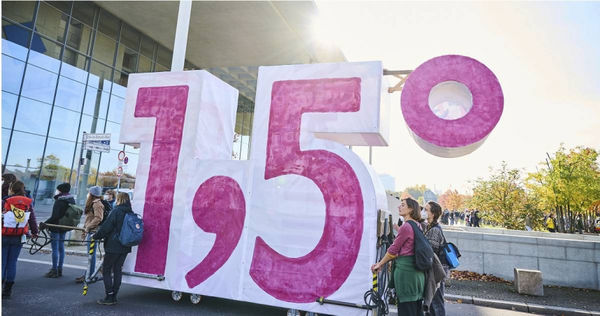
Scientists are warning that at the current rate of carbon emissions, the world has only two years of carbon budget left to meet the internationally agreed goal of limiting global warming to 1.5°C. This indicates that the planet is already deeply entrenched in a climate crisis.
According to a report by The Guardian, once the critical 1.5°C warming threshold is surpassed, the extreme weather events already wreaking havoc across the globe will worsen significantly. To restore the stable climate that has nurtured human civilization over the past 10,000 years, humanity will eventually need to remove large amounts of CO₂ from the atmosphere.
The carbon budget refers to the remaining allowable greenhouse gas emissions to keep global temperature rise within specific targets, such as 1.5°C or 2°C. In simple terms, it’s the remaining "quota" for CO₂ emissions; exceeding this limit would increase the risk of more severe climate change impacts.
In response, leading climate scientists have recently assessed that to maintain a 66% chance of staying below the 1.5°C threshold, cumulative global emissions after 2025 must be kept under 80 billion tonnes—an 80% reduction compared to 2020 levels.
However, global emissions in 2024 have once again reached record highs. At this pace, the 80-billion-tonne carbon budget will be exhausted within two years. Scientists note that due to the delayed response of the climate system—measured using multi-year averages—the 1.5°C threshold will definitively be breached in the near future.
The year 2024, driven by increased coal and gas consumption, is on track to be the hottest year on record, with the annual average temperature surpassing 1.5°C for the first time. Since the 28th UN Climate Change Conference (COP28) in Dubai in December 2023, where nations pledged to transition away from fossil fuels, there has been little concrete progress.
As fossil fuel emissions continue to rise, the scientific community has long warned that exceeding the 1.5°C limit is becoming inevitable. Latest analyses suggest that global emissions must plummet to near-zero within just a few years to stand a real chance of meeting the goal. However, with emissions increasing in 2024, the chances of success have become vanishingly small.
Scientists emphasize that every additional 0.1°C of warming intensifies human suffering, making rapid emission reductions more urgent than ever. The world is currently on a path toward 2.7°C of warming, which would bring catastrophic consequences. The analysis also shows that a more feasible goal might be limiting warming to 1.7°C. To maintain a 66% chance of staying below this level, the carbon budget is about 390 billion tonnes—enough for roughly nine more years at current emission rates.
Professor Joeri Rogelj of Imperial College London stated: “The carbon budget is shrinking rapidly, mainly because the world has failed to curb CO₂ emissions effectively. No matter what actions are taken now, we are very likely to face warming of 1.5°C or even higher.”
“The best time to take serious climate action was in 1992 when the UN Framework Convention on Climate Change was adopted,” Rogelj emphasized. “But starting now to make serious emission cuts is still the most important thing we can do every year. Every 0.1°C of warming means more harm and suffering—especially for the poor and vulnerable—and it threatens the lifestyles we aspire to.” He added that at COP30 in November, it is crucial for nations to commit to deep and immediate emissions reductions.
Source: ETtoday News
Website: 全球升溫1.5°C防線即將失守! 科學家示警:碳預算剩2年 | ETtoday國際新聞 | ETtoday新聞雲
Disclaimer:
1.The articles compiled and published by this association on the Taiwan Net Zero Emissions Association's official website and in the Member Biweekly Report are for the purpose of introducing international environmental trends and for educational use only, not for profit.
2.Any legal responsibilities or losses resulting from the use or adaptation of articles translated by the association shall be borne solely by the user or adapter.
For more insights on net-zero emissions, feel free to subscribe to our biweekly newsletter:
https://www.tnzea.org.tw/eforms.php?lang=tw&tb=1


